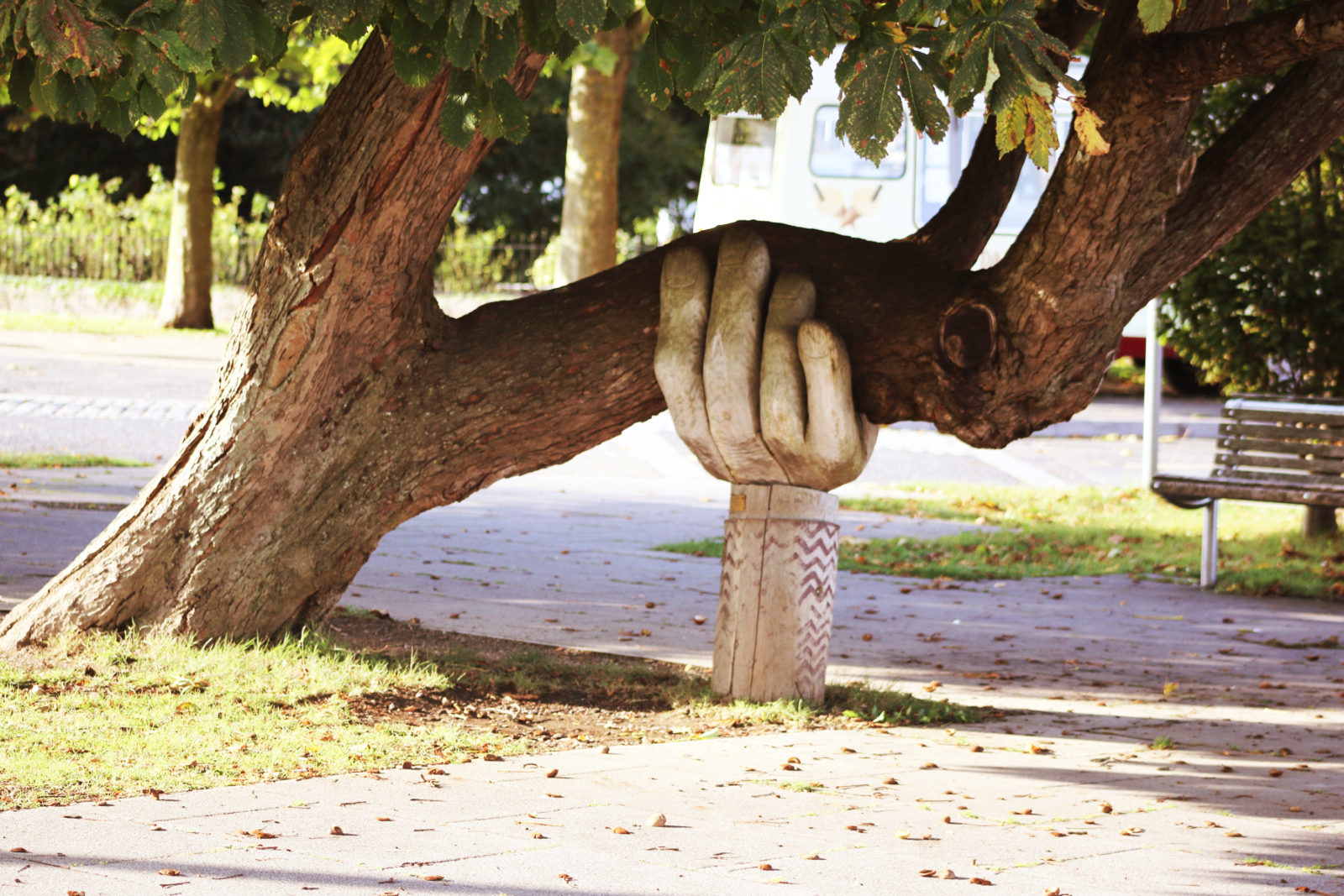When I taught freshman composition at a Christian college, years ago, I often used the phrase humbly certain to describe the kind of thinking I was encouraging them to do. And I still believe it’s one of the most important qualities for any thinking Christian to cultivate.
Being Flexible
Too often, we think of discernment as a rigid way of viewing the world. I know what’s right and make sure every message I interact with matches up with my list.
But being humbly certain requires and allows for some flexibility. That may sound very freeing to some of us. But it’s downright scary for others.
We’ve been told all our lives, some of us, that the worst thing we can be is wrong. There are truths, all the truths, and we are responsible for them. So we create long lists of things we believe and things we don’t and what we will and won’t do and who we will and won’t hang out with.
And don’t get me wrong, all of that is a good thing. To a point.
We must have a clear sense of what is true and how that truth must change our lives. And both of those will impact who we engage with and why.
But some of us have made an idol of our rightness. We worship our list, instead of the God they list is supposed to be about. We get rigid. And too often, we follow rigid with arrogant, nit-picky, unkind and judgmental.
Humbly Certain
Instead of such an unChristlike description, however, we can follow the less-traveled and slightly terrifying path of being humbly certain. It is a two-part mindset that works together to keep us from getting pulled off the path in either direction.
And it does start with certainty.
Hear me know, ladies, there are hills worth dying on. There are things that are true, biblical, and doctrinally sound, and there are lies, deceptions, and godly-sounding things that are hiding traps.
We have to know which is which. And that means we have to think about and study and develop clear reasons for what we believe, reasons that we can actually articulate to someone else.
Biblical faith is a reasonable faith. It is. It can be understood, backed up with evidence, and taught to someone else. And we need to be doing this—for ourselves and our kids and our churches and our neighborhoods. And, of course, for culture at large.
We need to be sure enough about where we stand on the issues we’re called to address that we can actually explain our viewpoint, clearly and accurately, to anyone who asks us about it (1 Peter 3:15). That’s certainty. That’s firmness. It’s us holding to the Truth and refusing to back away.
Getting Certain
So how do you develop certainty? Read, listen, think, and ask questions.
Read the Bible itself, for yourself, first of all. Study it every day. And then read books and articles and blogs, too. We need to be reading and learning about our Christian faith. Try books like Mama Bear Apologetics. And read authors like Tim Keller or Josh McDowell.
We need to be listening to podcasts by solid Bible teachers and disciplining ourselves to actually listen each week in our own churches instead of letting our minds wander once the “good stuff” (like singing praise songs) ends.
And we need to ask questions. Hard ones. Then get answers. Do the work. Know what you believe and why you believe it. That’s the certainty part.
Humbly Certain
And then, when you are sure enough to be able to communicate what you think on these hills-worth-dying-on topics, take a step back. Breathe for a moment. And loosen your grip.
Being humbly certain means that we know what we believe and why we believe it. We’re sure enough to stake our claim and defend it. But we balance that with an honest admission that we are not perfect or infinite or God.
Humbly certain means we admit we might not have all the information. Or all the proof. There might actually be ideas we haven’t considered. And then we’re open enough to listen to someone else.
I’m sure enough to trust myself. I know what I think. I’ve done the work. So I’m not just going to throw out my conclusions at the first sign of opposition. But I give my opponents a fair hearing. I admit they might have a point I haven’t considered, and I let them challenge me.
It’s not likely they’ll convince you. And that’s okay. This is where the flexibility comes in. Where we trust that God will protect us, helping us hear them fairly even as we think carefully about what they say.
Because we’re still listening closely and asking hard questions. We consider their proof, but we don’t accept their logic just because they claim it’s so. And honestly, it’ll be rare that anyone brings much of a challenge.
But it’s possible. And so we anchor ourselves in what we believe while we listen carefully to the other side.
Just Like Jesus
Humbly certain means being flexible and confident. We give others a chance to lay out their viewpoints about faith and God and the Bible and life, but only after doing the hard work of understanding our side well.
We’re certain. But we aren’t obnoxious about it. We’re humble, but we aren’t wishy-washy. Jesus was humble and certain. He was sure, but he let others come. He defended himself, but he was never judgmental.
Humbly certain is a godly attitude for approaching discernment. And it’s the best way I know to stay solidly on the path without also destroying our witness.



